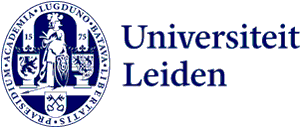
Gijsbert Rutten new professor of Dutch Linguistics
Gijsbert Rutten has been appointed professor of Dutch Linguistics with effect from 1 July. In this position, he will focus on language change and language variation, with a particular emphasis on historical sociolinguistics.
For the past five years, Rutten has already been professor by special appointment of Historical Sociolinguistics of Dutch, a chair made possible by the Merweborgh Foundation. This foundation is now also contributing to the full professorship. Multilingualism will play an important role within it. 'Like all fields of study, Dutch is experiencing a multilingual shift,' says Rutten. 'There has been research into Dutch for two hundred years, but it has largely been coloured by a nineteenth-century nationalist vision. It is only recently that attention has been paid to the idea that society was multilingual.'
That attention stems in part from Gijsbert's own NWO project on the influence of French on Dutch. 'Between 1600 and 1900, French had considerable influence on Dutch, but no large-scale empirical research had ever been done on it. When we made a more detailed study, we saw, for example, that the number of French loanwords increased steadily especially in the eighteenth century, and then in the nineteenth century there was a very sudden decrease to the level of the sixteenth century. That seems to be an ideological choice. Once Dutch nation building got underway, people probably actively avoided using French.’
Multilingualism central
Multilingualism will continue to play a central role in Rutten's research in the future. 'I’m now going to work with historians on the VOC archives. The VOC had all kinds of settlements where some of the people spoke Dutch, but some of its own staff were Swiss or French, and then there were the enslaved people. All of these groups left behind documents.' This offers a new insight into history, which may also be of interest to students. Rutten: 'You can no longer limit the history of Dutch to P.C. Hooft and Mariken van Nieumeghen. We need to show students in particular that ordinary people wrote and that their use of language was often different from what we thought.'
Rutten explains how to do that in the book Historical Sociolinguistics (with Rik Vosters), which will be published shortly. He is also working on a Handbook of Historical Sociolinguistics. Both books discuss the theory of historical sociolinguistics, supplemented with various case studies. ‘There are already a lot of case studies for English, but fewer for other languages,’ Rutten explains. ‘This book therefore includes examples from Dutch, French, Spanish and Chinese, among others.’
Who speaks what in Leiden?
Rutten is also continuing to work closer to home. ‘I’m currently working with a number of colleagues to map out how multilingual Leiden is. That’s more difficult than you might think, because it isn’t recorded anywhere which languages people speak. We are now trying to find ways to map this out. If we succeed, the municipality will be able to make a more informed choice about which languages it uses.’
